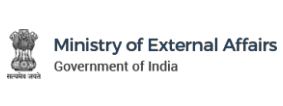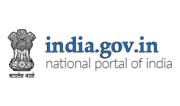Statement by His Excellency Mr. Pranab Mukherjee, Minister of External Affairs at the General Debate of the 62nd session of the UN General Assembly
New York
October 1, 2007
Your Excellency, Mr. President,
Excellencies,
Ladies and Gentlemen,
Kindly accept my congratulations on your election to the Presidency of the 62nd session of the UN General Assembly. My delegation assures you of its full co-operation as we address issues identified in the Annual Report of the Secretary-General and responsibly and creatively move forward with pending reforms to this Organization.
Mr. President,
At the outset I would like to express India’s deep gratitude to all Member States for the unanimous adoption recently by the UN General Assembly of the resolution to annually observe the International Day of Non-Violence on October 2, the birth anniversary of Mahatma Gandhi. I also look forward to participation by Member States in the informal UNGA Plenary and other functions being organized tomorrow at the United Nations to mark the first International Day of Non-Violence.
Mr. President,
The topic for this year’s debate - Responding to Climate Change - is both timely and relevant. India’s views on it have recently been set forth at the high-level event on Climate Change here last week. Combined with the exchange of views in the General Debate, it will no doubt provide a useful backdrop to the meeting of the UN Framework Convention on Climate Change to be held later this year in Bali, Indonesia. The impact of climate change and environmental degradation falls disproportionately upon developing countries. Developing countries, are the most vulnerable to it, and also lack the means to tackle it. Measures to address climate change must be based on mitigation and adaptation strategies with fair burden sharing and measures to realize sustainable patterns of consumption and production. The process of burden sharing must also take into account where the primary responsibility for the present state of GHG concentration in the atmosphere rests and not foreclose rapid and sustained economic development for the developing world, which, in any case, is an imperative for adaptation.
Technology is the other key area that needs to be addressed. It is important that critical clean technologies are made available and affordable for developing countries. The IPR regime must balance rewards for innovators with the common good of humankind. Concerted international action to address climate change in accordance with the principle of common but differentiated responsibilities and respective capabilities, as also national circumstances and social and economic conditions, is the need of the hour. India, for whom energy security is a national imperative, has a very small individual carbon footprint with per capita CO2 emissions just about a quarter of the world’s average. Even then, we are determined that even as we pursue economic growth, our per capita GHG emissions will not increase beyond those of the industrial countries.
Mr. President,
Poverty and underdevelopment are amongst the central challenges of our times. The overarching requirement is for sustained economic growth to eradicate poverty in developing countries. However, economic growth must also be measured against the template of social inclusion. Growth alone is not enough if it does not produce benefits that are sufficiently dispersed, not only in terms of increased income and employment but also for improved health, nutrition, and education for all.
I affirm India’s resolve to achieve the internationally agreed development goals, including the Millennium Development Goals. The Government of India accords the highest priority to inclusive growth, including the political, legal, educational and economic empowerment of women, effective and affordable public health and enhanced access to educational opportunities, especially for all those who are disadvantaged.
It is apparent that progress in the achievement of the internationally agreed development goals has been tardy. The international community, through the UN system, must more effectively support the efforts of developing countries to achieve the development goals. A comprehensive reform of the international financial architecture is a key ingredient in this process. The United Nations must play an important role in overseeing the reform of the international financial architecture. This should include measures to ensure a greater voice for and participation by developing countries in the Bretton Woods Institutions. The process of reform must be carried to its logical conclusion if the credibility of these institutions is to be enhanced.
We must also address as a priority the regrettable inversion of global resource flows. Today, instead of the urgently needed inflow of resources to developing countries to buttress their national economic development plans, we are confronted with a net outflow from them. Official Development Assistance showed a marked fall during 2006, and remains well below the target of 0.7% of GNP. It is primarily being used to finance debt relief. That this is happening after so many years of liberalization and globalization highlights our collective failure. Perhaps we should be considering mechanisms such as an international debt commission to redress the problem of developing country debt. The LDCs, who are particularly hard hit by rising energy costs, find themselves in an even more difficult situation. Enhanced and predictable resource flow to developing countries remains a key objective of the global partnership for development. India will continue to do what she can to help with capacity building in other developing countries, and to assist them through ODA within the limits of our capacity. By the end of the year, LDC imports into India will face a zero tariff regime.
Early and substantive progress at the Doha round of trade negotiations, based on the primacy of the development dimension, is another imperative. We must return to the negotiating table with a redoubled sense of urgency, while recognizing that adherence to the existing mandate remains critical. Nor can the interests of subsistence farmers be ignored or equated with those of other sectors. An illogical linkage between agriculture and NAMA will only complicate the developmental impact of the round. The overarching principle of special and differential treatment for developing countries remains a categorical imperative.
Mr. President,
As part of India’s commitment to the achievement of human rights for all, and as a member of the Human Rights Council, we remain actively involved in developing the institutional framework of this body, including the Universal Periodic Review Mechanism, based on effective international cooperation as a central principle in the Council’s method of work. India will work towards developing an international normative framework for promotion and protection of human rights. India is honored to be one of the first signatories of the International Convention for the Protection of all Persons from Enforced Disappearance. Earlier today, I also had the honour of depositing India’s instrument of ratification of the UN Convention on the Rights of Persons with Disabilities.
As the largest democracy in the world, India has developed a system of local self-government with democratically-elected institutions of representative government at all levels, i.e., the village, the district, the state and at the national level. The effort to make participatory democracy more meaningful to every Indian citizen underpins what is perhaps one of the greatest social experiments in the world today, namely, the transfer of decision-making power to nearly one million elected women local government representatives. As a result, women are not merely the beneficiaries of change in India, but are its instruments.
As the world’s largest democracy, it was also natural for India to support the establishment of the UN Democracy Fund. We had made an initial contribution of $10 million to this Fund and remain actively and constructively involved in realizing the objectives for which it has been set up. As a small token of our commitment to this laudable initiative, I have the privilege of announcing a further pledge of $10 million to the UN Democracy Fund.
Mr. President,
The international system cannot be reordered meaningfully without comprehensively reforming the United Nations. If the Organization is to remain the cornerstone of the international architecture in this century, it cannot remain mired in the realities of the 1940s. Despite substantive implementation of the UN reform agenda that emerged from the Outcome Document of the World Summit in 2005, such reform will inevitably remain incomplete without comprehensive reform and expansion of the Security Council, and revitalization of the General Assembly. Elements and ideas on the reform of the Security Council have been discussed for well over a decade, through numerous reports and interminable consultations. It is now time for inter-governmental negotiations to commence in order to make the Security Council more democratic, representative and responsive. We, with partners from Africa, Latin America and Asia, tabled a resolution on September 11, 2007, spelling out the principles on which reform ought to be based if it has to be meaningful. These principles are: expansion in both permanent and non-permanent categories of membership; greater representation for developing countries, including representation for developed countries that is reflective of contemporary world realities; and comprehensive improvement in the working methods of the Security Council, including ensuring greater access to island and small states. We welcome recent statements from this podium by President Bush of the USA and other world leaders on the need for UNSC reform in both permanent and non-permanent categories. It is high time that we collectively brought these ideas to implementation.
Mr. President,
Reform of the United Nations would also be incomplete without revitalization of the General Assembly. The central goal of such revitalization must be the restoration and enhancement of the role and authority of the General Assembly, as originally envisaged in the Charter.
Given the significance of developmental activities for the developing world, India sees a corresponding need for the reform of UN’s operational activities for development. Since these activities are aimed at supporting the work of Member States, it follows that Members must determine their direction and shape through an intergovernmental process. The litmus test for any reform proposal is whether it improves the support extended by the UN to the efforts of programme countries. India would, therefore, judge reform proposals by their impact on the ground, the resultant improvement in the effectiveness of the system, and by the impact on transaction costs for the UN development system.
Mr. President,
Steps to achieve the complete elimination of nuclear weapons have also only made limited headway. Despite some progress, the world remains far from achieving the objective of total elimination of nuclear weapons. India’s long-standing commitment to universal, non-discriminatory and comprehensive nuclear disarmament is embodied in the vision of late Prime Minister Rajiv Gandhi for a “nuclear-free and non-violent world”. This vision was put forward nearly two decades ago. It remains undiminished today. Indeed, it is all the more relevant today, given the fact that peaceful uses of nuclear energy can address the inexorably growing demand for new and non-polluting sources of energy to fuel economic development. We will be bringing proposals to member states and this organisation to see how we can refocus on general and complete disarmament, particularly nuclear disarmament. It is disarmament that is our agreed goal, and that subsumes arms control and non-proliferation.
It is well known that India has an impeccable record in preventing the proliferation of sensitive technologies. This is in keeping with our commitment to being a responsible nuclear power. India is ready to work with the international community to develop a new international consensus on non-proliferation. The international community needs to intensify the effort to address the very real threat posed by the link between proliferation of WMDs and related materials and technologies to non-state actors. The risk posed by the intersection between proliferation and terrorism is real and serious. The central objective must be to ensure that our solidarity in words is translated into action.
Mr. President,
The adoption of the United Nations Global Counter-Terrorism Strategy last September was a noteworthy development, signaling the will of the international community to combat this menace in a holistic and coordinated manner. Welcome as the strategy is, there is much more that needs to be done to combat the menace that international terrorism has become. India is convinced that without the early adoption of the Comprehensive Convention against International Terrorism, the global struggle against terrorism remains incomplete and likely to succeed only partially. We must ensure that there is zero tolerance for all forms of terrorism.
Mr. President,
In conclusion, I would express the hope that our deliberations in the year ahead will lead us to enlightened action. With maturity and resolve we will successfully overcome the many challenges before us.
Thank you Mr. President.
*****







